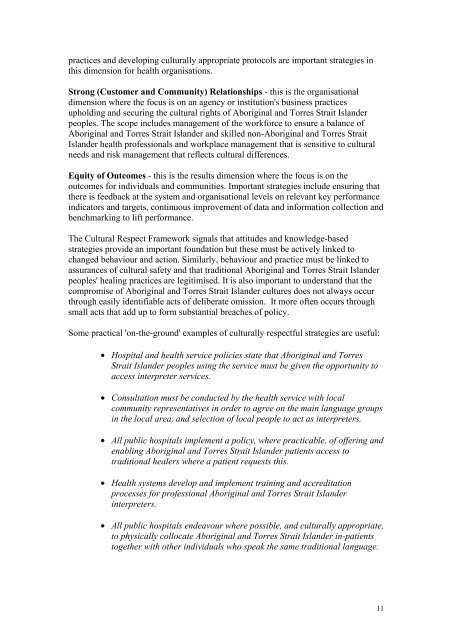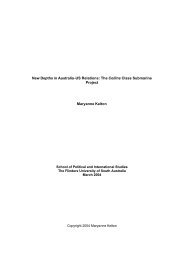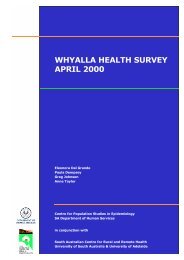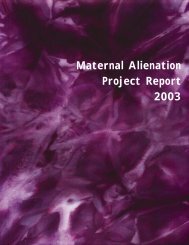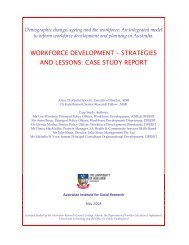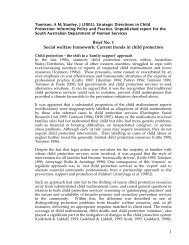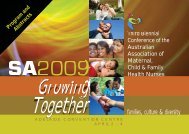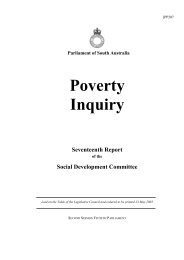cultural respect framework cultural respect framework - SA.Gov.au
cultural respect framework cultural respect framework - SA.Gov.au
cultural respect framework cultural respect framework - SA.Gov.au
- No tags were found...
You also want an ePaper? Increase the reach of your titles
YUMPU automatically turns print PDFs into web optimized ePapers that Google loves.
practices and developing <strong>cultural</strong>ly appropriate protocols are important strategies inthis dimension for health organisations.Strong (Customer and Community) Relationships - this is the organisationaldimension where the focus is on an agency or institution's business practicesupholding and securing the <strong>cultural</strong> rights of Aboriginal and Torres Strait Islanderpeoples. The scope includes management of the workforce to ensure a balance ofAboriginal and Torres Strait Islander and skilled non-Aboriginal and Torres StraitIslander health professionals and workplace management that is sensitive to <strong>cultural</strong>needs and risk management that reflects <strong>cultural</strong> differences.Equity of Outcomes - this is the results dimension where the focus is on theoutcomes for individuals and communities. Important strategies include ensuring thatthere is feedback at the system and organisational levels on relevant key performanceindicators and targets, continuous improvement of data and information collection andbenchmarking to lift performance.The Cultural Respect Framework signals that attitudes and knowledge-basedstrategies provide an important foundation but these must be actively linked tochanged behaviour and action. Similarly, behaviour and practice must be linked toassurances of <strong>cultural</strong> safety and that traditional Aboriginal and Torres Strait Islanderpeoples' healing practices are legitimised. It is also important to understand that thecompromise of Aboriginal and Torres Strait Islander cultures does not always occurthrough easily identifiable acts of deliberate omission. It more often occurs throughsmall acts that add up to form substantial breaches of policy.Some practical 'on-the-ground' examples of <strong>cultural</strong>ly <strong>respect</strong>ful strategies are useful:• Hospital and health service policies state that Aboriginal and TorresStrait Islander peoples using the service must be given the opportunity toaccess interpreter services.• Consultation must be conducted by the health service with localcommunity representatives in order to agree on the main language groupsin the local area, and selection of local people to act as interpreters.• All public hospitals implement a policy, where practicable, of offering andenabling Aboriginal and Torres Strait Islander patients access totraditional healers where a patient requests this.• Health systems develop and implement training and accreditationprocesses for professional Aboriginal and Torres Strait Islanderinterpreters.• All public hospitals endeavour where possible, and <strong>cultural</strong>ly appropriate,to physically collocate Aboriginal and Torres Strait Islander in-patientstogether with other individuals who speak the same traditional language.11


